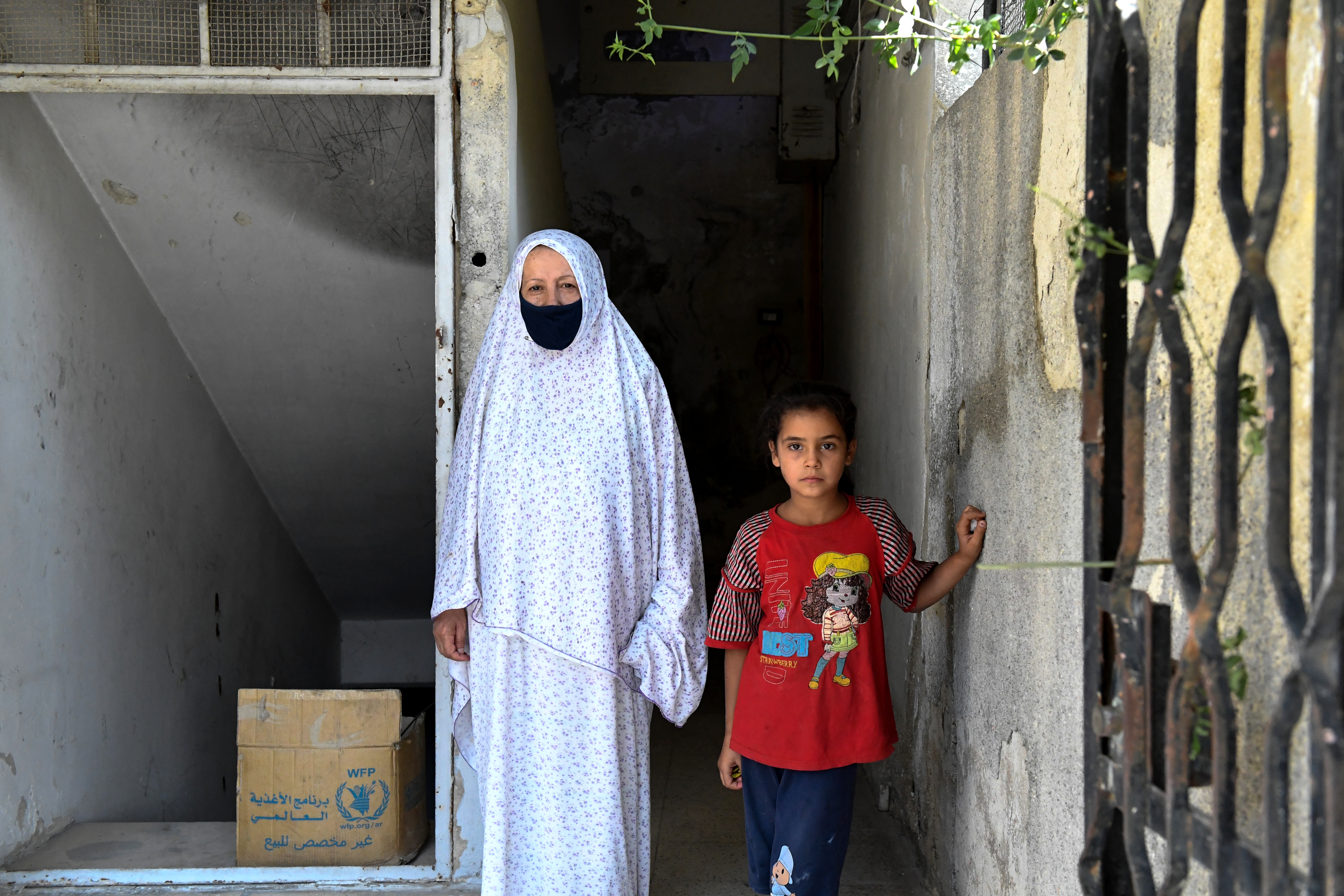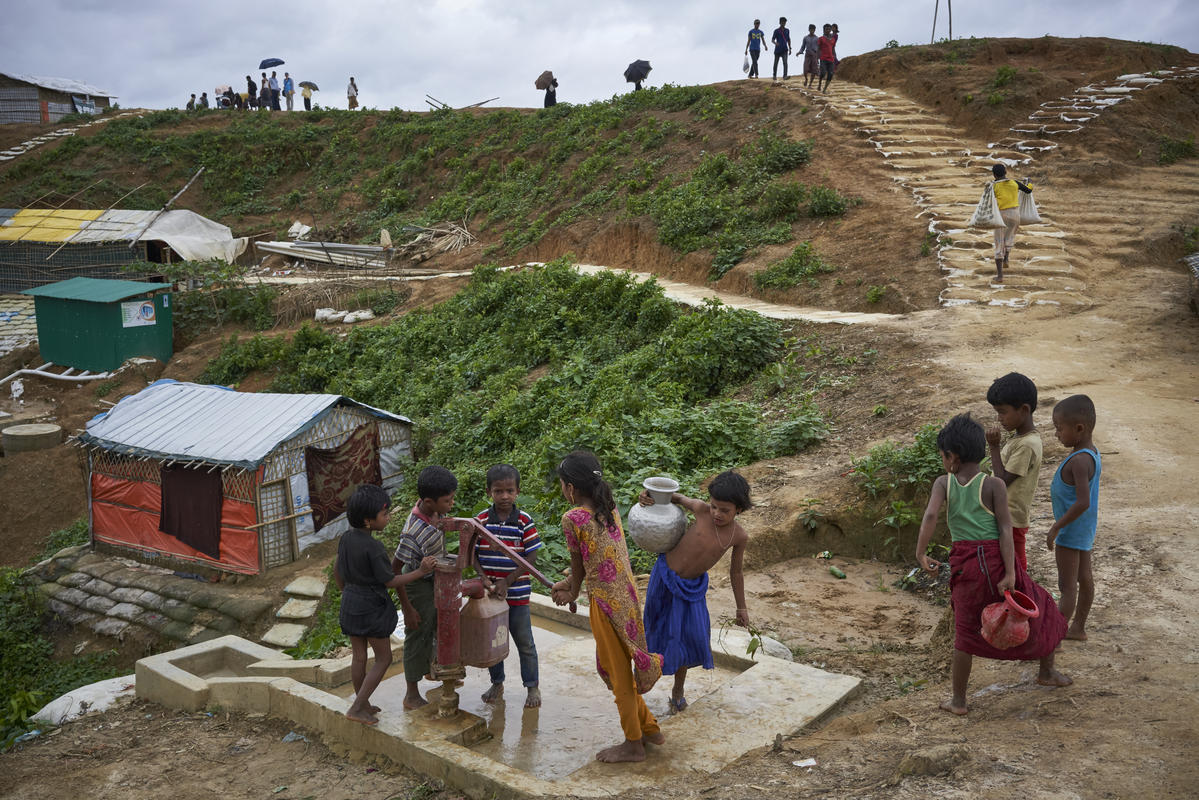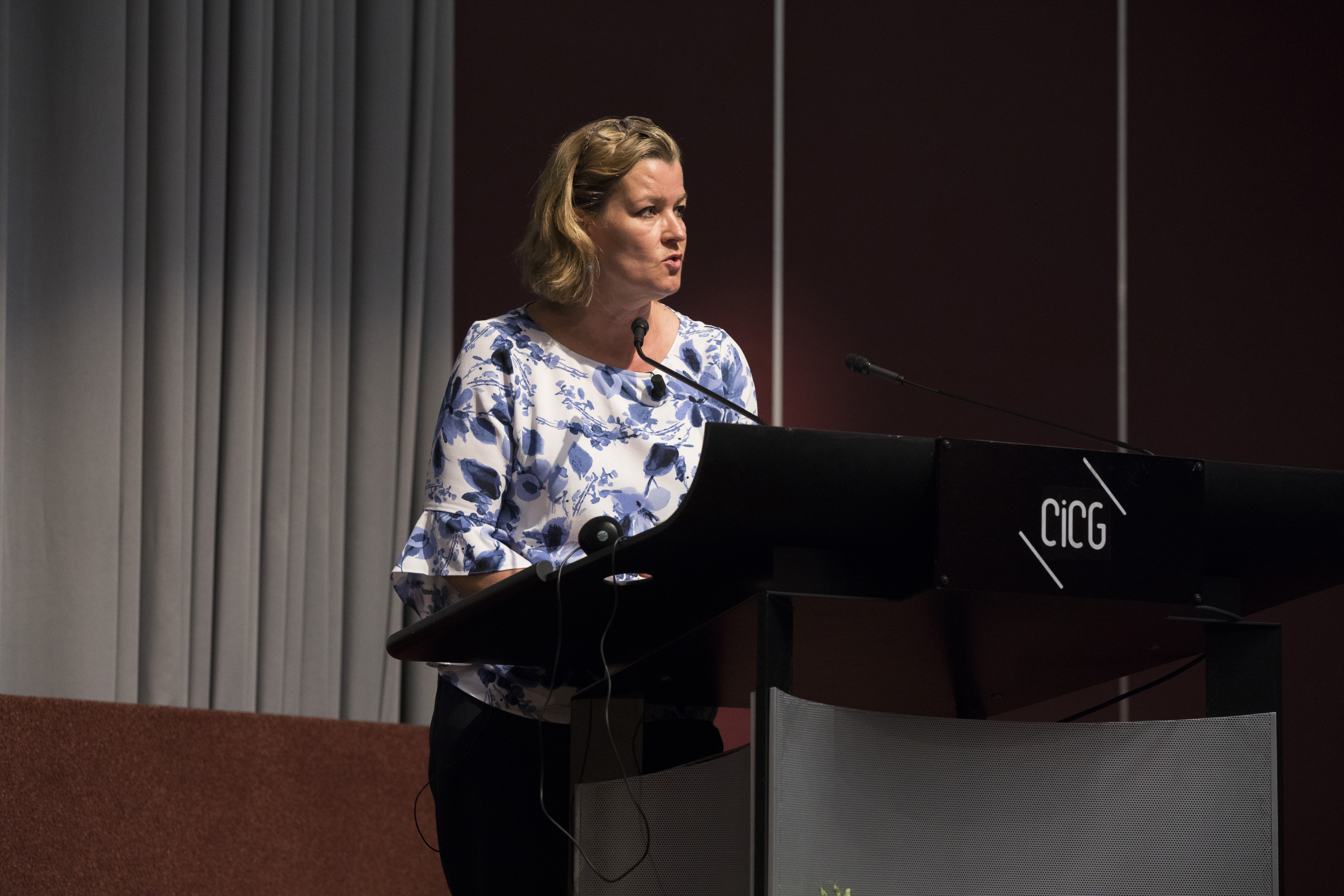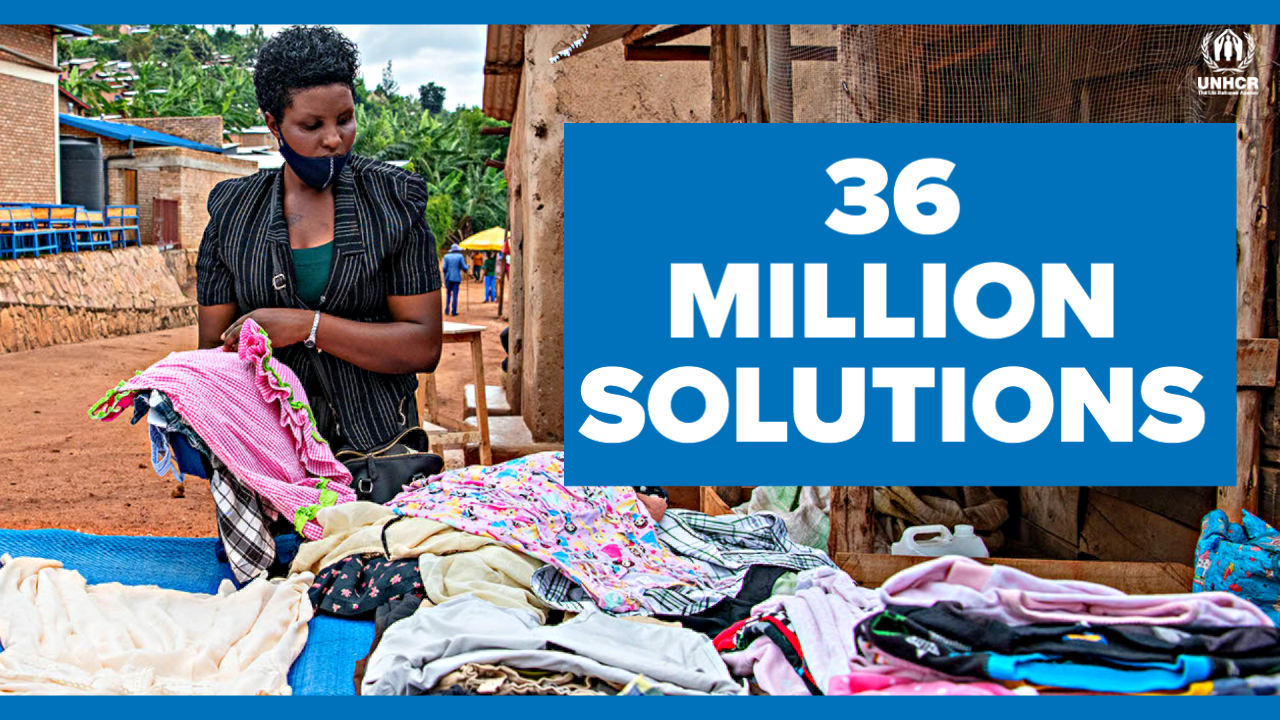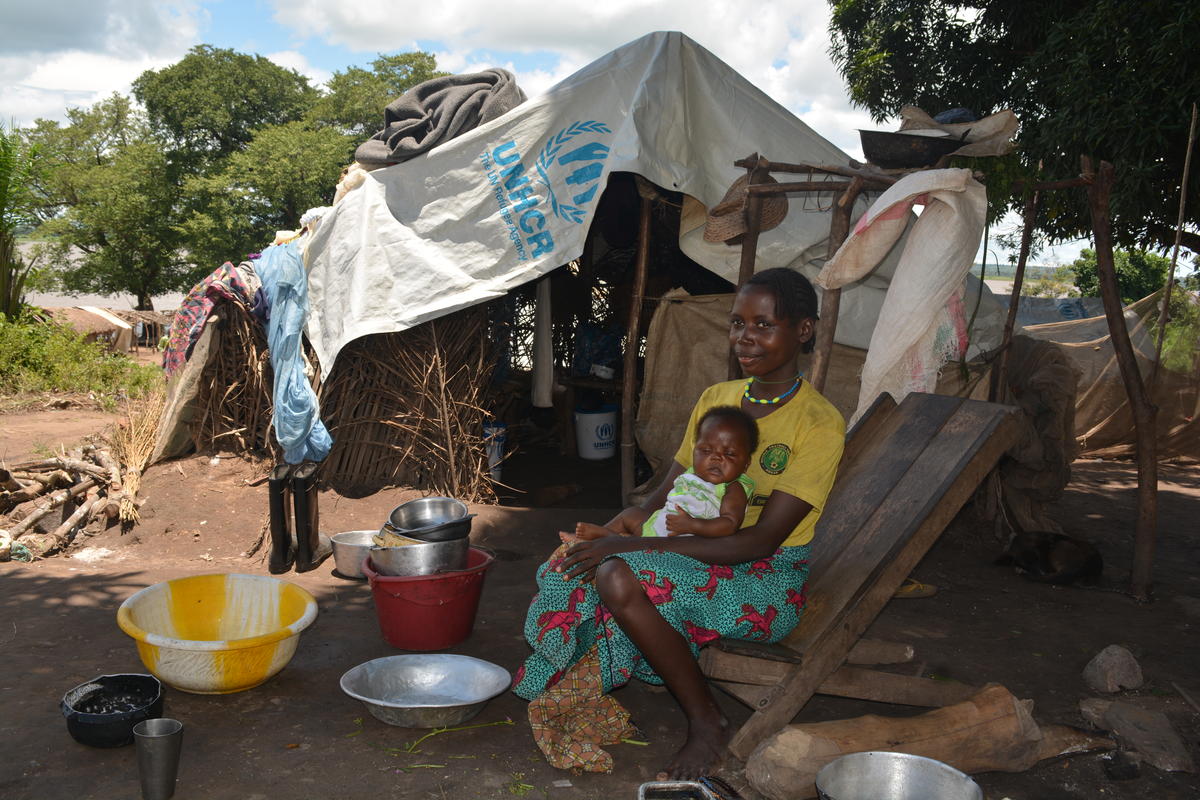Feature: NGOs connect UNHCR with Afghan refugees in Pakistan
Feature: NGOs connect UNHCR with Afghan refugees in Pakistan

LAHORE, Pakistan, May 23 (UNHCR) - When dignitaries gathered this month to see off more than 500 Afghan refugees, UNHCR and the Pakistan government shared the podium with a relief agency that had been key to their effort to contact the refugees and organise returns from a city where refugees are submerged among 6 million Punjabis.
As the UN refugee agency seeks to disseminate information needed by the estimated two million Afghans in Pakistan to make a decision on returning, it is clear that non-governmental organisations (NGOs) already working among the poor know where to find Afghans in a country of 150 million Pakistanis.
"We don't have any presence in Lahore," said Fayyaz Ali Khan, UNHCR's repatriation officer responsible for the province of Punjab. "I came across Caritas last year when I was on an exploratory trip to Lahore. This year we told them we wanted to involve them and hopefully compensate them in some way."
Caritas, a relief arm of the Catholic Church, was running extensive poverty-relief projects in Lahore - and elsewhere in Pakistan - before UNHCR made contact. Their workers had local knowledge unavailable to UNHCR, which has operated in refugee camps rather than the cities and villages of Pakistan.
"We don't have the kind of human resources that they have at their disposal. We can't imagine even having something like that. It is an obvious plus," said the UNHCR officer.
Inside the tent set up for the ceremonies, a large banner read: "Best wishes to the Afghan families repatriating from Lahore, Pakistan, to their homeland. From Caritas Pakistan, UNHCR, the Commissionerate of Refugees." Behind the tent lay one of the Afghan settlements inside the city where Caritas works, a collection of huts and wandering water buffaloes.
"We have to connect, make a link between Afghanistan and here," said Javed Williams, national executive secretary of Caritas. So far about 2,000 Afghans identified by Caritas in Lahore have repatriated. Numbers for the rest of the year are expected to be low, he said, but Caritas is already preparing groups to repatriate next year.
The co-operation between UNHCR and Caritas was formalised on May 23 by an agreement that covers the ongoing work in the Lahore area, where they have registered some 8,000 Afghan families. They have records on another 1,500 families in the nearby city of Sialkot.
Caritas is also active in Rawalpindi and Quetta, both major cities with substantial numbers of Afghan refugees, where UNHCR is trying to inform and assist those seeking to repatriate.
While Caritas may provide a model for UNHCR as it expands its co-operation with NGOs in Pakistan, others already are providing the refugee agency with vital local knowledge about refugees.
In the coastal city of Karachi, a sprawling metropolis of more than 12 million people, an NGO in the Aga Khan development programme, FOCUS Humanitarian Assistance, has put its comprehensive knowledge of Hazara Afghan refugees at the service of UNHCR.
While Hazaras, who follow the Ismaili religion, are a minority of the Afghans in Karachi, FOCUS has again demonstrated the importance of a local partner. The organisation, which gives support to Hazaras from education to health both in Pakistan and Afghanistan, handles much of the repatriation process that UNHCR must do for other Afghan groups.
By the time UNHCR does a final check on returning Hazara refugees, they have been fully prepared by FOCUS, even using their own machine to do the iris tests that guarantee no one receiving assistance has been through the process previously. Guidance, assembly and transportation are arranged by FOCUS.
"FOCUS sustained them while they were living in Pakistan and now they are helping them to repatriate," said Urooj Saifi, head of UNHCR's office in Karachi.
With UNHCR's limited resources focused on main urban centres - it has identified 128 communities of Afghan refugees inside Karachi alone - NGOs are the only realistic way to reach the Afghan refugees who are scattered in rural Pakistan.
"We keep discovering that there are refugees all over the province and even in small villages there are refugees who have absolutely no idea what has happened to Afghanistan or what we are doing," said Saifi. "The objective is to get more and more NGOs involved."

With UNHCR working to resolve the 23-year-old Afghan refugee problem - the agreement between Pakistan, Afghanistan and UNHCR provides for voluntary repatriation until 2005 followed by screening to see who still needs refugee status - it is imperative that all remaining refugees know UNHCR will assist those wanting to return.
If UNHCR, working with NGOs who know the communities, can tell refugees about the changes in Afghanistan that have already drawn more than 1.6 million Afghans from Pakistan, the estimated two million refugees still there can make a well-informed decision on whether to return.
One NGO working in an impoverished, drought-struck area of Sindh province alerted UNHCR that there were many refugees working in brick kilns - miserable conditions of bonded labour, a life of virtual slavery. These are the people, often living in poverty, who must be told they can now go home with UNHCR assistance.

